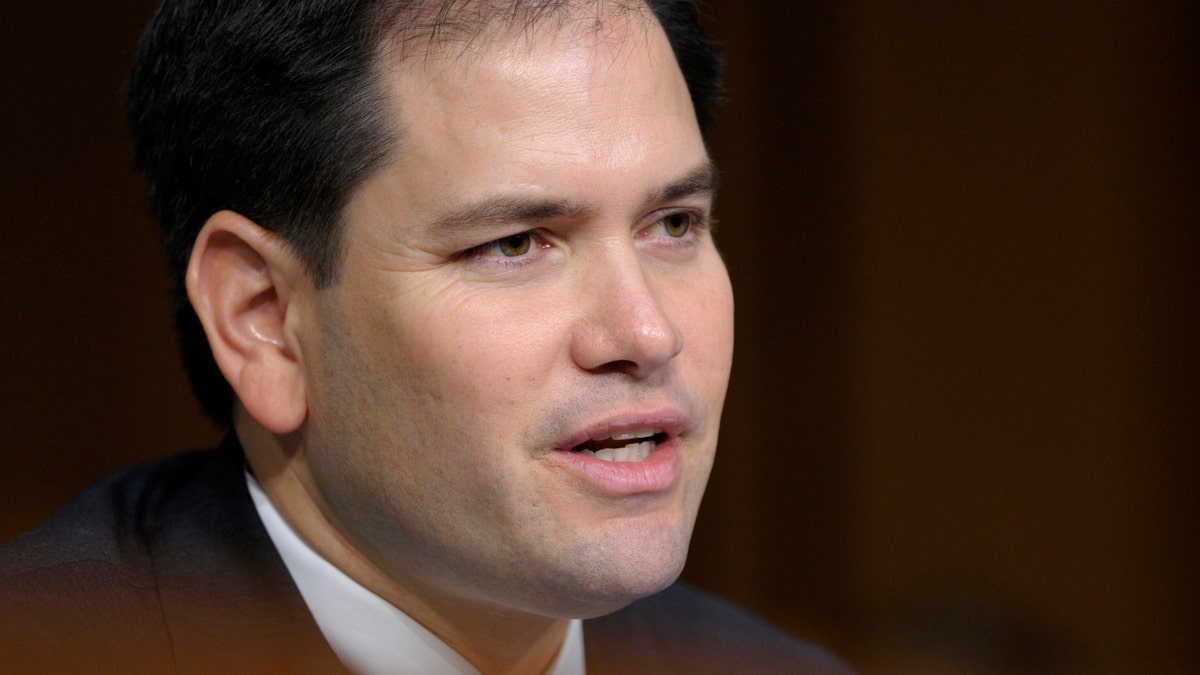
FILE: Undated: Sen. Marco Rubio, R-Fla. (AP)
Sen. Marco Rubio, who has taken aim at fellow lawmaker and presidential rival Ted Cruz over immigration, is now drawing contrasts between himself and the Texan on the issue of taxes.
In Florida this week, Rubio referred to so-called value-added tax as an “intentionally sneaky” way to make government bigger.
He did not say outright in a campaign appearance in Sarasota, Fla. that Ted Cruz favors value-added tax, which is similar to a sales tax and would take the place of payroll and corporate income tax. But whom he was referring to was tacitly understood by those following the campaigns.
Rubio told the audience that he supports a 16 percent business flat tax that would form the foundation of funding the government. Rubio also supports a 10 percent personal income tax.
Rubio said that the value-added tax system, in general, adversely affects profits and workers because they’re sneaked into prices and wages.
The Wall Street Journal said that it remains unclear how Cruz’s tax plan would affect prices and salaries.
Cruz says that his tax plan is simpler. Sen. Rand Paul also supports the value-added tax plan.
Speaking at a town hall in his home state, the Florida senator said Democrats and Republicans alike are to blame for a national debt that is expected to hit $20 trillion next year, calling it the "most predictable crisis in American history."
"Every time the alarm starts blaring, signaling we're reaching the debt ceiling, Washington hits the snooze button and goes back to sleep," Rubio said in prepared remarks before the meeting. "I will stop this irresponsible spending and solve our nation's debt crisis."
Rubio said he would put Social Security and Medicare on "fiscally sustainable paths," without laying out specifics. But he has said he would gradually raise the retirement age, though not for those in or near retirement. On Medicare, he has proposed giving seniors the option of keeping it or enrolling with a private insurance company.
The Associated Press contributed to this report.
Like us on Facebook





















